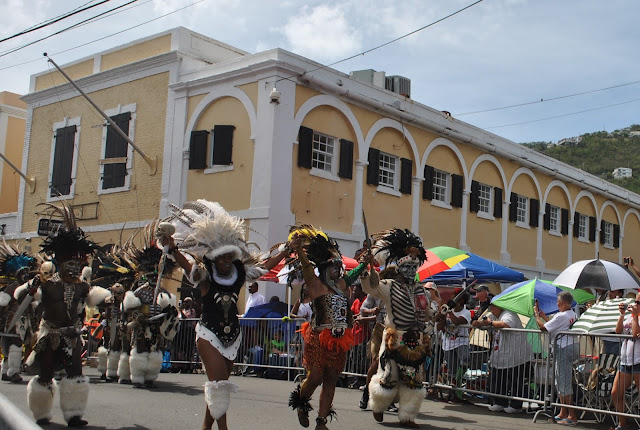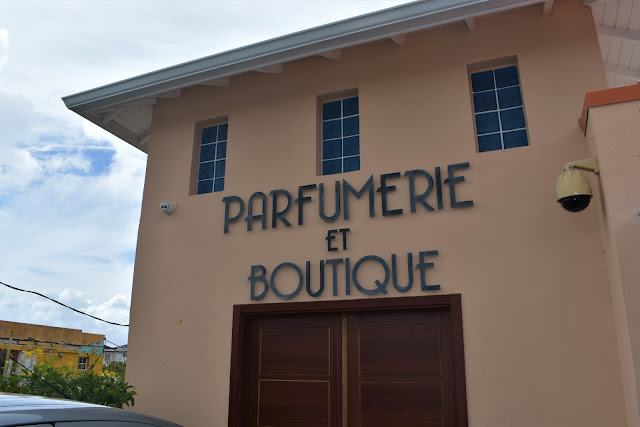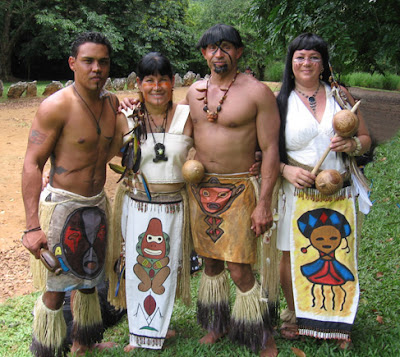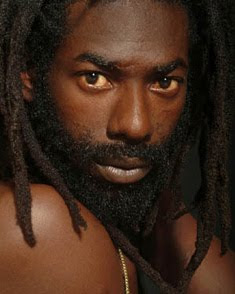St. Thomas Carnival and African Heritage
Everybody loves Carnival. A lot of people think that it's just a big, colorful excuse to party but there is so much historical significance to the practice. Carnival literally translates to "farewell to meat" in Latin. It represents the Lenten tradition of the Catholic church to sacrifice during the month leading up to the resurrection of Jesus. A big party preceded the month of sacrifice. Spanish and Portuguese colonizers brought the tradition to North and South America. But as I watched St. Thomas Carnival, I was excited to see the Shaka Zulu troupe above, because so much of contemporary Carnival culture incorporates African culture. Enslaved Africans weren't allowed to join the Carnival celebrations so they created there own. All the feathers and masks used for costumes directly relate to African ceremonial style. The masks and feathers were used to invoke spirits.
And the Mocko Jumbies or Stilt walkers? Most Virgin Islanders recognize them as a direct link to their West African heritage. These costumed figures are an important part of African religious ceremonies and rites of passages, adding spiritual protection to the events. Usually, they wear masks or a face covering but that St. Thomas sun was blazing so I don't blame this Mocko Jumbie for leaving off her mask!
The music, the dancing, the costumes of Carnival all display African traditions. So the next time you jump up or watch a colorful carnival procession, please don't forget to thank Mama Africa!
Photos by R. Cummings-Yeates






Comments
agra taxi hire